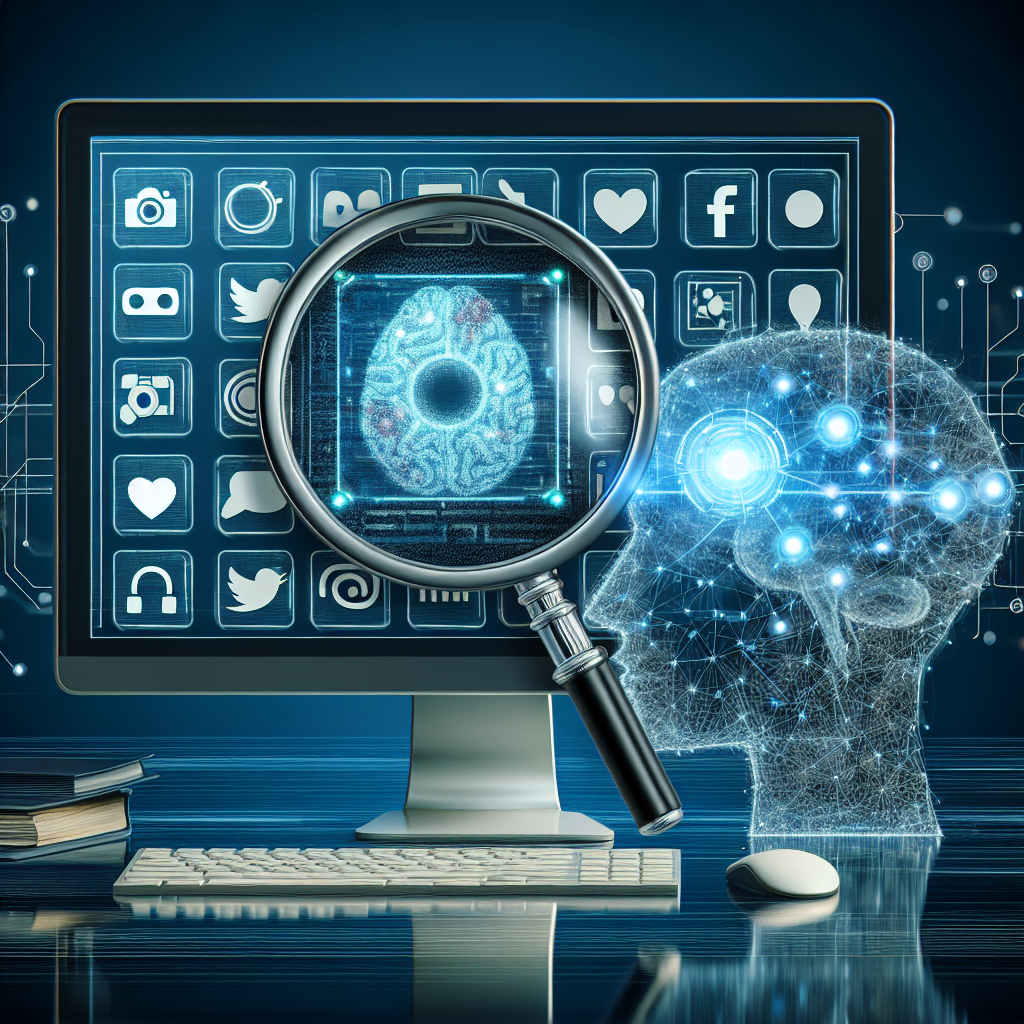In today’s digital age, social media has become an integral part of our daily lives. Millions of people around the world use platforms like Facebook, Twitter, Instagram, and LinkedIn to connect with friends, family, and colleagues, share updates about their lives, and stay informed about current events. With the sheer volume of data being generated on social media every day, businesses, governments, and organizations have turned to artificial intelligence (AI) to monitor and analyze this data for valuable insights.
AI-powered social media monitoring and analysis tools use algorithms to sift through vast amounts of data, identify trends, sentiment, and patterns, and provide valuable information that can be used for marketing, public relations, customer service, and even law enforcement. While these tools offer many benefits, they also raise important ethical questions about privacy, consent, bias, and accountability.
In this article, we will explore the ethics of AI in social media monitoring and analysis, examining the potential benefits and risks, and discussing how organizations can navigate these complex issues.
Benefits of AI in Social Media Monitoring and Analysis
AI-powered social media monitoring and analysis tools offer a wide range of benefits for businesses, governments, and organizations. Some of the key advantages include:
1. Real-time insights: AI algorithms can process large volumes of data quickly and efficiently, allowing organizations to monitor conversations, trends, and sentiment in real-time. This can help businesses identify potential issues or opportunities and respond proactively.
2. Targeted marketing: AI tools can analyze social media data to identify key demographics, interests, and behaviors, allowing businesses to create targeted marketing campaigns that are more likely to resonate with their audience.
3. Customer service improvements: By monitoring social media conversations, organizations can identify customer complaints, feedback, and issues in real-time, allowing them to address concerns promptly and improve customer satisfaction.
4. Competitive intelligence: AI tools can track competitors’ social media activity, helping organizations understand their strategies, strengths, and weaknesses, and make informed decisions about their own marketing and communication efforts.
5. Crisis management: AI-powered social media monitoring tools can help organizations identify and respond to crises quickly, minimizing the impact on their reputation and brand.
Risks and Ethical Concerns of AI in Social Media Monitoring and Analysis
While AI-powered social media monitoring and analysis tools offer many benefits, they also raise important ethical concerns that organizations must consider. Some of the key risks and challenges include:
1. Privacy: Social media users may not be aware that their data is being monitored and analyzed by AI algorithms, raising concerns about privacy and consent. Organizations must be transparent about their data collection practices and ensure that they are complying with relevant data protection laws.
2. Bias: AI algorithms can be biased based on the data they are trained on, leading to inaccurate or unfair results. Organizations must carefully monitor and evaluate their AI tools to ensure that they are not perpetuating biases related to race, gender, or other factors.
3. Accountability: As AI tools become more advanced, it can be challenging to understand how they arrive at their conclusions. Organizations must be able to explain and justify the decisions made by their AI systems, especially when these decisions have significant consequences for individuals or society.
4. Misinformation: AI-powered social media monitoring tools can inadvertently amplify misinformation or fake news by prioritizing sensational or controversial content. Organizations must be vigilant in verifying the accuracy of the information they are analyzing and sharing.
5. Manipulation: AI algorithms can be manipulated by malicious actors to spread disinformation, manipulate public opinion, or undermine trust in institutions. Organizations must be aware of these risks and take steps to protect their systems from manipulation.
FAQs
Q: How can organizations ensure that their AI-powered social media monitoring tools are ethical and compliant with data protection laws?
A: Organizations should conduct thorough assessments of their AI tools to identify potential biases, risks, and ethical concerns. They should also implement robust data protection measures, such as obtaining consent from users, anonymizing data where possible, and ensuring compliance with relevant regulations like the General Data Protection Regulation (GDPR).
Q: What steps can organizations take to address bias in their AI algorithms?
A: Organizations can address bias in their AI algorithms by diversifying their training data, testing their models for fairness and accuracy, and regularly auditing their systems for bias. They should also involve diverse stakeholders in the development and evaluation of their AI tools to ensure that different perspectives are considered.
Q: How can organizations promote transparency and accountability in their AI-powered social media monitoring efforts?
A: Organizations can promote transparency and accountability by explaining how their AI tools work, providing clear information about the data they collect and analyze, and being open about the limitations and potential biases of their systems. They should also establish clear processes for handling complaints, inquiries, and requests for information from users.
Q: What are the potential risks of relying too heavily on AI for social media monitoring and analysis?
A: Relying too heavily on AI for social media monitoring and analysis can lead to a number of risks, including over-reliance on automated systems, lack of human oversight, and reduced ability to detect and respond to nuanced or complex issues. Organizations should balance the use of AI tools with human expertise and judgment to ensure that they are making informed decisions based on a comprehensive understanding of the data.
In conclusion, the ethics of AI in social media monitoring and analysis are complex and multifaceted. While AI-powered tools offer many benefits for organizations, they also raise important ethical concerns related to privacy, bias, accountability, and transparency. Organizations must navigate these challenges carefully, implementing robust data protection measures, addressing bias in their algorithms, promoting transparency and accountability, and balancing the use of AI with human expertise. By taking these steps, organizations can harness the power of AI for social media monitoring and analysis in a responsible and ethical manner.

